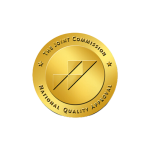What You'll Learn:
- The Role of MAT in Alcohol and Opioid Addiction
- The Benefits of Medication Assisted Treatment
- Medication Assisted Treatment Policies and Procedures
- Analyzing Medication Assisted Treatment Statistics
- Weighing the Pros and Cons of MAT
- The Future of MAT in Addiction Recovery
- Integrating MAT with Holistic Approaches
- Overcoming Stigmas Around MAT
Medication Assisted Treatment (MAT) is revolutionizing the field of addiction recovery. This approach combines FDA-approved medications with comprehensive counseling and behavioral therapies. Designed to treat substance use disorders holistically, MAT addresses both physical dependence and psychological challenges. Tailored to individual needs, MAT offers a unique and effective route to recovery.
The Role of MAT in Alcohol Addiction
The role of Medication Assisted Treatment (MAT) in alcohol addiction is increasingly recognized as a crucial element in the comprehensive approach to treatment. MAT for alcohol addiction involves the use of medications, in combination with counseling and behavioral therapies, to provide a “whole patient” approach to the treatment of substance use disorders. Medications used in MAT for alcohol addiction work by reducing the physical cravings and withdrawal symptoms that can accompany cessation of alcohol use. This can make the process of quitting more manageable and less distressing for the individual.
MAT for Opioid Addiction
Prolonged opioid use causes changes in the brain’s chemistry, leading to opioid addiction, a chronic medical condition. It drives a compulsive urge to use opioids, despite harmful consequences. For example, MAT can reduce or eliminate the need for detoxification services, making the process of quitting opioids less severe and has been shown to improve patient survival and increase retention in treatment. By satisfying the brain’s cravings for opioids, MAT decreases the likelihood of relapse to illicit opioid use. Pregnant women with opioid use disorders on MAT have better birth outcomes compared to those who don’t receive this treatment.
The Benefits of Medication Assisted Treatment
Medication Assisted Treatment (MAT) has emerged as a vital component in the field of addiction treatment, offering a range of benefits for individuals struggling with substance use disorders, particularly those related to opioids and alcohol. This approach combines the use of FDA-approved medications with counseling and behavioral therapies to provide a holistic approach to treatment. It can help significantly reduce the severe and often uncomfortable withdrawal symptoms associated with stopping drug use, making the recovery process more manageable.
By alleviating withdrawal symptoms and cravings, MAT can help individuals stay engaged in their treatment programs for longer periods, increasing the chances of long-term recovery. As individuals stabilize in their recovery, they often find it easier to seek, secure, and maintain employment, which is a crucial aspect of rebuilding a life free from addiction. By combining medication with counseling and behavioral therapies, MAT addresses not just the physical aspects of addiction, but also the psychological and social factors.
Medication Assisted Treatment Policies and Procedures
Medication Assisted Treatment (MAT) policies and procedures are essential for ensuring that this form of treatment is administered safely, effectively, and ethically. These guidelines govern how MAT is used in the treatment of substance use disorders, particularly those involving opioids and alcohol. Understanding these policies and procedures is crucial for healthcare providers, patients, and their families. Programs must comply with federal and state regulations, including the Substance Abuse and Mental Health Services Administration (SAMHSA) guidelines and the Drug Enforcement Administration (DEA) regulations. Comprehensive patient assessment is crucial to determine the appropriateness of MAT. This includes medical history, the severity of addiction, and any co-occurring mental health disorders. MAT programs must adhere to confidentiality laws like the Health Insurance Portability and Accountability Act (HIPAA). Patient information must be protected and shared only with consent.
Analyzing Medication Assisted Treatment Statistics
Taking a look at the statistics related to Medication Assisted Treatment (MAT) is crucial for understanding its effectiveness and impact in the field of addiction treatment. These statistics offer valuable insights into how MAT is helping individuals with substance use disorders, particularly those struggling with opioid and alcohol addiction. Studies have consistently shown that patients in MAT programs have higher retention rates compared to those in non-medication-assisted programs. This is crucial because longer retention in treatment is associated with better outcomes. Research indicates that access to MAT can decrease overdose fatalities, a critical factor given the current opioid epidemic.
Weighing the Pros and Cons of MAT
Some advantages are that MAT significantly eases withdrawal symptoms, making the initial stages of recovery more manageable and less painful. While MAT offers numerous advantages, it's important to consider its potential drawbacks. These may include dependency on medication and the need for long-term management. A balanced view of MAT’s pros and cons is essential for those considering this treatment option.
The Future of MAT in Addiction Recovery
The future of MAT is bright, with ongoing research and policy enhancements. With growing evidence supporting its effectiveness, MAT is becoming an increasingly integral part of addiction treatment strategies, offering evidence-based solutions for substance use disorders. For instance, increasing awareness and understanding of addiction as a medical condition may reduce the stigma surrounding MAT. As a result, this could lead to wider acceptance among healthcare providers, policymakers, and the public. Ongoing research and development in pharmacotherapy are expected to introduce new medications for MAT that are more effective, have fewer side effects, and lower potential for misuse.
Integrating MAT with Holistic Approaches
Integrating MAT with holistic treatment approaches is an emerging trend in treating addictions to drugs like Angel Dust. This involves combining medication with therapies like mindfulness, yoga, and nutritional counseling. Such an integrated approach ensures a more comprehensive treatment of addiction, addressing the individual's physical, mental, and emotional well-being.
Overcoming Stigmas Around MAT
Despite its benefits, MAT often faces stigmatization. Therefore, dispelling myths and educating the public about the efficacy and safety of MAT is crucial. Understanding MAT as a legitimate, scientifically backed treatment option is essential in changing perceptions and encouraging more individuals to seek this effective form of treatment.
American Recovery embraces the latest in addiction treatment, including the innovative approaches of Medication Assisted Treatment. Moreover, we understand that overcoming addiction requires a comprehensive, personalized approach, and our team is committed to providing just that. If you or someone you love is struggling with addiction, reach out to us at 866-484-2502. At American Recovery, we offer a supportive, nurturing environment where you can embark on your journey to recovery with the best resources and care available. Let us help you achieve a healthier, substance-free future.


